Today’s Current Affairs: 21st March 2024 for UPSC IAS exams, State PSC exams, SSC CGL, State SSC, RRB, Railways, Banking Exam & IBPS, etc
Table of Contents
Food Safety And Standards Authority Of India (FSSAI):
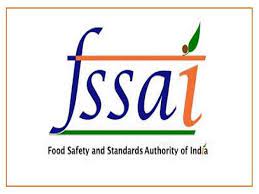
The Food Safety and Standards Authority of India (FSSAI) is working towards creating a network of 34 microbiology labs across the country that will be equipped to test food products.
- Food Safety and Standards Authority of India (FSSAI) is an autonomous body established under the Ministry of Health and Family Welfare, Government of India.
- It has been established under the Food Safety and Standards Act, 2006, which is a consolidating statute related to food safety and regulation in India.
- Mission is set globally benchmarked standards for food, encourage and ensure that food businesses adhere to these standards, adopt good manufacturing and hygiene practices, and ultimately enable citizens to access safe and right food.
- It is responsible for protecting and promoting public health through the regulation and supervision of food safety.
- It lays down standards and guidelines in relation to articles of food and provides for licensing, registration, and accreditation for food business operators.
- Anyone selling or importing food in India needs a food license issued by FSSAI.
- Its officers carry out food import controls and ensure that the contain no harmful ingredients. It is also responsible for the accreditation of food testing laboratories throughout India.
- The FSSAI is responsible for the Food Certification in India.
- It is mandated to specify systems for enforcing its standards, for accreditation of certification systems, and for certification of food safety management systems for food businesses.
Spring Equinox:

March 19 marked the spring or vernal equinox, the first day of spring in the Northern Hemisphere.
- As Earth revolves around the Sun, there are two moments each year when the Sun is exactly above the equator.
- These moments called equinoxes occur around March 19, 20 or 21 and September 22 or 23.
- Equinox literally means “equal night,” since the length of day and night is nearly equal in all parts of the world during the equinoxes.
- The March equinox marks when the Northern Hemisphere starts to tilt toward the sun, which means longer, sunnier days.
- In the Northern Hemisphere, the March equinox is called the vernal equinox, because it signals the beginning of spring (vernal means fresh or new like the spring).
- The September equinox is called the autumnal equinox, because it marks the first day of fall (autumn).
- When the Northern Hemisphere starts to tilt toward the sun in spring, the Southern Hemisphere starts to tilt away from the sun, signaling the start of fall.
- Thus, in the Southern Hemisphere, the March equinox is called the autumnal equinox, and the September equinox is called the vernal equinox.
- While the March equinox brings later sunrises, earlier sunsets, chillier winds and dry, falling leaves in the Southern Hemisphere, while the reverse happens in the Northern Hemisphere.
International Seabed Authority (ISA) : 29th Session
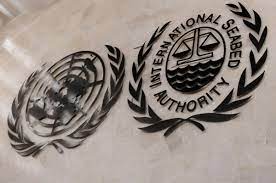
The Council of the International Seabed Authority (ISA) commenced the first part of its 29th session recently.
- International Seabed Authority (ISA) is an autonomous international organization established in 1994 to regulate mining and related activities in the international seabed beyond national jurisdiction, an area that includes most of the world’s oceans.
- The ISA came into existence upon the entry into force of the 1982 United Nations Convention on the Law of the Sea (UNCLOS), which codified international law regarding territorial waters, sea lanes, and ocean resources.
- It organizes and controls all mineral-resources-related activities in the Area (the seabed and ocean floor and the subsoil thereof, beyond the limits of national jurisdiction) for the benefit of humankind as a whole.
- Headquarters: Kingston, Jamaica
- ISA has 169 Members, including 168 Member States and the European Union.
- The ISA is responsible for granting licenses and regulating activities related to the exploration and exploitation of mineral resources in the international seabed.
- It ensures that these activities are carried out in a manner that protects the marine environment and promotes the equitable and efficient utilization of resources.
United Nations Convention on the Law of the Sea (UNCLOS):
- UNCLOS, also called the Law of the Sea Convention or the Law of the Sea Treaty, is an international agreement that establishes a legal framework for all marine and maritime activities.
- It lays down a comprehensive regime of law and order in the world’s oceans and seas, establishing rules governing all uses of the oceans and their resources.
State Of Global Climate Report 2023:
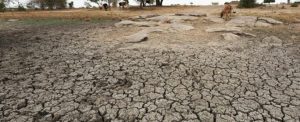
As per the State of the Global Climate report, published recently, 2023 was found to be the hottest year on record.
- Global Climate Report 2023 is an annual report published by the World Meteorological Organisation (WMO).
- Many experts and partners contribute to the report, including UN organizations, National Meteorological and Hydrological Services (NMHSs), and Global Data and Analysis Centers, as well as Regional Climate Centres, the World Climate Research Programme (WCRP), the Global Atmosphere Watch (GAW), the Global Cryosphere Watch and the Copernicus Climate Change Service operated by ECMWF.
Highlights of the 2023 Report:
- 2023 was the hottest year on record, with the global average near-surface temperature at 1.45 °Celsius (with a margin of uncertainty of ± 0.12 °C) above the pre-industrial baseline.
- It was the warmest ten-year period on record.
- On an average day in 2023, nearly one third of the global ocean was gripped by a marine heatwave, harming vital ecosystems and food systems. Towards the end of 2023, over 90% of the ocean had experienced heatwave conditions at some point during the year.
- The global set of reference glaciers suffered the largest loss of ice on record (since 1950), driven by extreme melt in both western North America and Europe, according to preliminary data.
- In 2023, renewable capacity additions increased by almost 50% from 2022, for a total of 510 gigawatts (GW), the highest rate observed in the past two decades.
41st Steering Committee Meeting Of The International Partnership For Hydrogen And Fuel Cells:
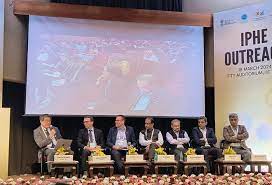
The 41st Steering Committee Meeting of the International Partnership for Hydrogen and Fuel Cells in the Economy (IPHE) started in New Delhi recently.
- IPHE, established in 2003, is an international inter-governmental partnership currently consisting of 23 member countries and the European Commission.
- Objective is to facilitate and accelerate the transition to clean and efficient energy and mobility systems using fuel cells and hydrogen technologies.
- It serves as a mechanism to organize and implement effective, efficient and focused international research, development, demonstration and commercial utilization activities related to hydrogen and fuel cell technologies.
- It also provides a forum for sharing information on policies and technology status, as well as on initiatives, codes, and standards to accelerate the cost-effective transition to the use of fuel cells and hydrogen in the economy.
- Members: Australia, Canada, European Commission, India, Netherlands, Switzerland, Austria, Chile, France, Italy, Norway, UAE, Belgium, China, Germany, Japan, South Africa, United Kingdom, Brazil, Costa Rica, Iceland, South Korea, Singapore, and the United States.
Gender Inequality Index (GII), 2022:
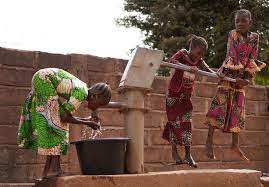
The Gender Inequality Index (GII), 2022 has been released by UNDP in their Human Development Report 2023-24.
- In GII, India stands at rank 108th out of 193 countries, with a score of 0.437.
- Gender Inequality Index is a composite metric of gender inequality using three dimensions: reproductive health, empowerment and the labour market.
- It reflects the gap in human development potential due to inequality between female and male achievements in these areas.
- GII values range from 0 (equality) to 1 (extreme inequality).
- A low GII value indicates low inequality between women and men, and vice-versa.
India And Brazil First-Ever ‘2+2’ Dialogue:
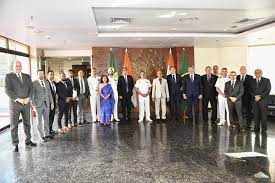
India and Brazil conducted their first-ever ‘2+2’ defence and foreign ministerial dialogue, discussing cooperation in key areas.
- The talks focused on expanding cooperation in various areas, including energy, critical minerals, technology, and counter-terrorism.
- The ‘2+2’ defence and foreign ministerial dialogue involves the participation of the defence and foreign ministers of two countries, along with their respective counterparts, to discuss strategic and security-related issues, as well as diplomatic matters.
- India conducts ‘2+2’ dialogues with key strategic partners: the US, Australia, Japan, and Russia.
- The US holds the oldest and most significant ‘2+2’ talks partnership with India.
Indo Pacific Economic Framework:

India has decided to join at least one of the four cooperative work programmes unveiled last week under the ‘clean energy pillar’ of the U.S.-led Indo Pacific Economic Framework (IPEF) – the one on facilitating and promoting carbon-market activities.
- The Indo-Pacific Economic Framework for Prosperity (IPEF) is an economic initiative launched by U.S. President Joe Biden on May 23, 2022.
- The framework launched with fourteen participating founding member nations in the Indo-Pacific region with an open invitation for other countries to join.
- Indo Pacific Economic Framework (IPEF) was launched jointly by the USA and other partner countries of the Indo-Pacific region on May 23, 2022 at Tokyo.
- IPEF has 14 partner countries including Australia, Brunei, Fiji, India, Indonesia, Japan, Republic of Korea, Malaysia, New Zealand, Philippines, Singapore, Thailand, Vietnam & USA.
- It seeks to strengthen economic engagement among partner countries with the goal of advancing growth, peace and prosperity in the region.
- The framework is structured around four pillars relating to Trade (Pillar I); Supply Chains (Pillar II); Clean Economy (Pillar III); and Fair Economy (Pillar IV).
- Seen by many analysts as an attempt by the U.S. to counter China’s growing influence in the region, the IPEF aims at having a common set of rules and standards around the four pillars.
SAKHI : Gaganyaan Space Flight Mission

The Vikram Sarabhai Space Centre (VSSC), under the Indian Space Research Organisation (ISRO), has developed an innovative and versatile application called the Space-borne Assistant and Knowledge Hub for Crew Interaction (SAKHI) to support astronauts during the Gaganyaan space flight mission.
- SAKHI offers access to technical information, facilitates communication, monitors health, ensures connectivity with Earth and onboard systems, and manages dietary schedules.
- Strapped to space suits, SAKHI helps astronauts access data, maintain logs, and stay informed about their well-being, enhancing safety and efficiency for the Gaganyaan mission and aligning with ISRO’s goal of advancing space exploration.
Ghost Particles : Detected

Astronomers detected 7 potentials ‘ghost particles’ that passed through planet.
- Scientists using data from the Ice Cube Neutrino Observatory in Antarctica believe they have potentially found the first evidence for astrophysical tau neutrinos, called “ghost particles”.
- “Ghost Particles” is a nickname for neutrinos, which are tiny subatomic particles.
- They are often called ‘ghost particles’ because they barely interact with anything else.
- Neutrinos come from various sources and are often the product of heavy particles turning into lighter ones, a process called “decay”.
- They belong to the family of particles known as leptons.
- There are three main leptons, namely electrons, muons, and tau particles
- The last has proven to be especially difficult to observe and detect, earning the moniker of “ghost particle.”
- A neutrino is very similar to an electron, but has no electrical charge and a very small mass.
- They are the most common particle in the universe. Approximately 100 trillion neutrinos pass completely harmlessly through our body every second.
- They are extraordinarily difficult to detect, as they rarely collide with atoms.
- Of the four fundamental forces in the universe, neutrinos only interact with two gravity and the weak force.
- They come in different types and can be thought of in terms of flavors, masses, and energies.
- In recent developments, China is constructing the world’s largest “ghost particle” detector, a massive underwater telescope in the South China Sea, designed to detect neutrinos.
- The telescope, named Tropical Deep-sea Neutrino Telescope (TRIDENT),is expected to span 7.5 cubic kilometers and be 10,000 times more sensitive than existing underwater telescopes.
Reserve Bank Integrated Ombudsman Scheme : Report
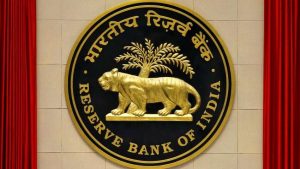
As per a recent report the number of complaints filed under the Reserve Bank’s ombudsman schemes increased by over 68 per cent to 7.03 lakh in the fiscal 2022-23.
- The complaints pertained to mobile/electronic banking, loans and advances, ATM/debit cards, credit cards, pension payments, remittances, and para banking, among others.
RESERVE BANK INTEGRATED OMBUDSMAN SCHEME (RB-IOS):
- The Reserve Bank Integrated Ombudsman Scheme (RB-IOS) was launched on November 12, 2021.
- This scheme integrates the three erstwhile Ombudsman schemes of the Reserve Bank of India (RBI), namely:Banking Ombudsman Scheme 2006, Ombudsman Scheme for Non-Banking Financial Companies 2018,Ombudsman Scheme for Digital Transactions
- The RB-IOS aims to provide cost-free redress of customer complaints involving ‘deficiency in service’ on the part of entities regulated by the RBI.
- If these complaints are not resolved to the satisfaction of the customers or not replied to within a period of 30 days by the regulated entity, the scheme steps in.
- The scheme also includes under its ambit additional Regulated Entities (REs), namely, Non-Scheduled Primary (Urban) Co-operative Banks with a deposit size of ₹50 crore and above and Credit Information Companies.
- The scheme adopts a ‘One Nation One Ombudsman’ approach by making the RBI’s Ombudsman mechanism jurisdiction neutral.
Features:
- The grounds for filing a complaint are defined as “deficiency in service”, with a specified list of exclusions.
- A Centralized Receipt and Processing Centre has been set up at RBI, Chandigarh, for handling physical and email complaints in any language.
- The responsibility of representing the regulated entity and furnishing information lies with the Principal Nodal Officer
- Regulated entities cannot appeal when an Award is issued by the Ombudsman against them for not providing satisfactory and timely information/documents.




